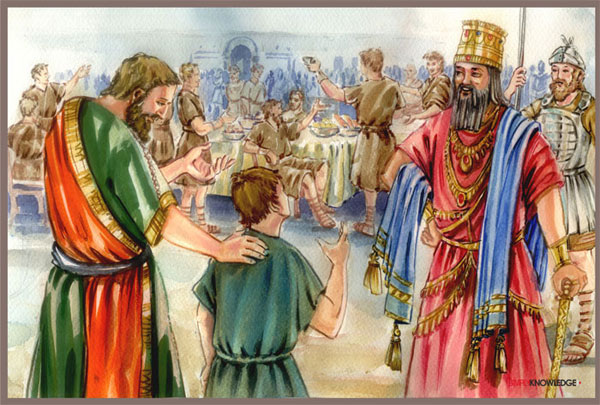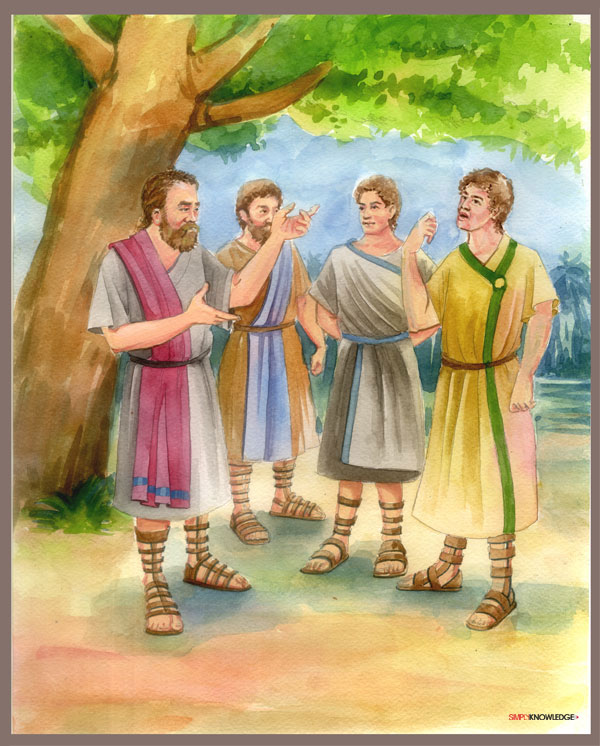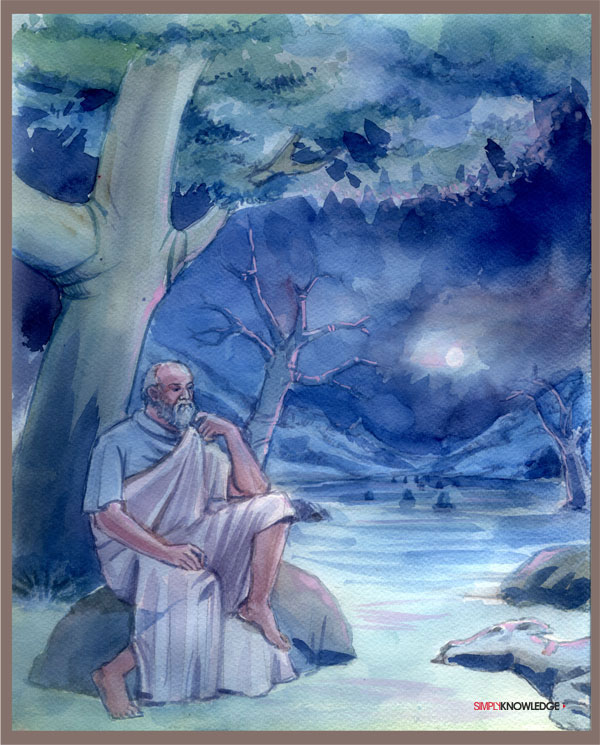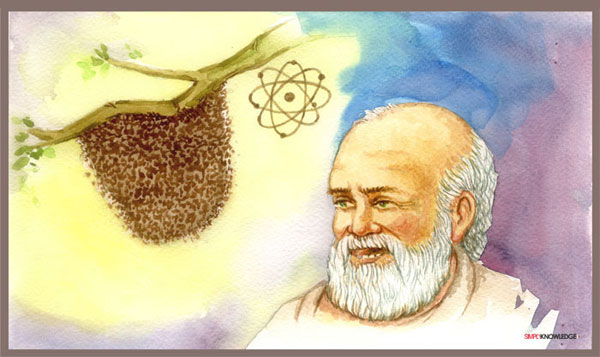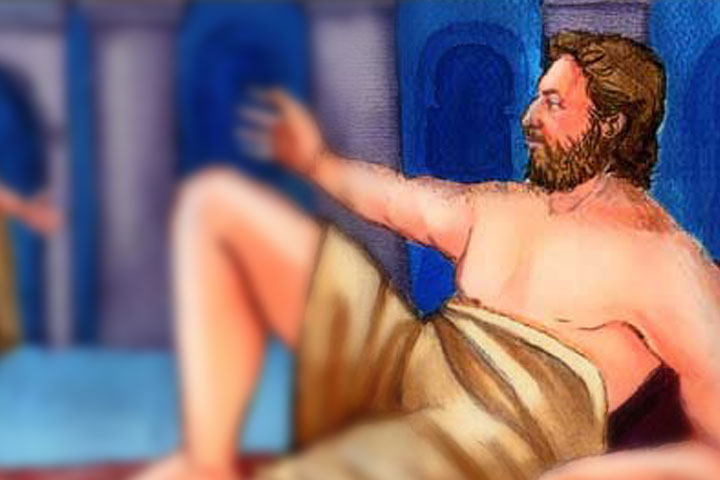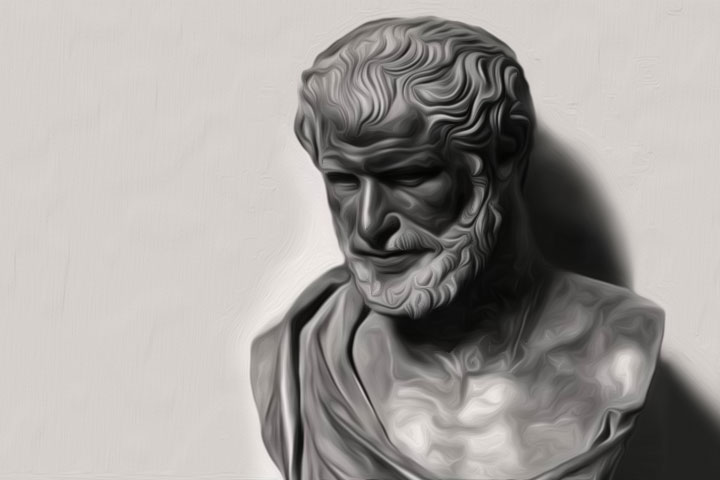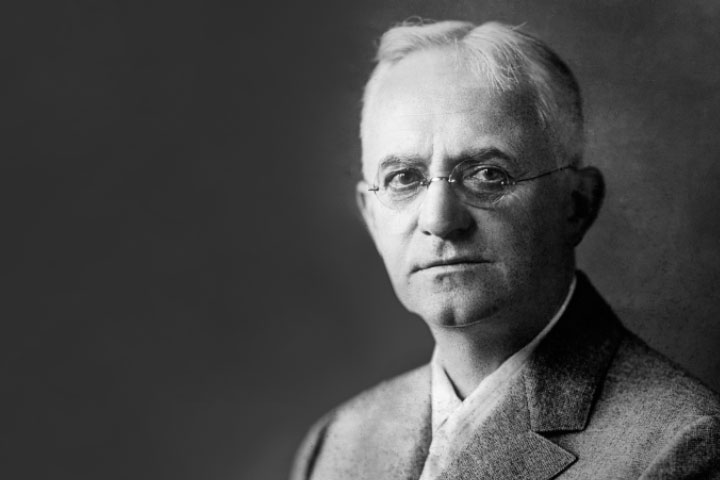
Introduction
“Raising children is an uncertain thing. Success is reached only after a life of battle and worry,” said the great thinker, Democritus, about 2,500 years ago. Democritus was not referring to the lack of parental attention that kids experience nowadays. During Democritus’ era, there were no “electronic babysitters” or expensive gadgets that parents nowadays bribe their children with, to compensate for dearth of close family bonds. Instead, he was referring to the inherent human capabilities that enable parents to raise their siblings with care, teach moderation, balance and ethics, among other life skills.
Democritus emphasised the importance of ethics drawing a parallel with medicine. He said, ethics are science that cares for the soul of a child similar to medicine which treats physical diseases. He expounded that humans-or parents- possess all the characteristics vital to control nature and hence, can shape the future of children, provided they are willing to go that extra mile. But what had an ancient Greek thinker have in common with parenting nowadays? To learn that, we have to study the life and teachings of Democritus, an ancient thinker who laid basis of some forms of psychology.

Birth
Democritus was born in the town Abdera, on the Thracian coast in Greece, in 470BC. The names of his parents are not recorded. His father was a wealthy businessman with trade links as far as Persia. Some historians state, Democritus’ father was very effusive and his wealth can be gauged from the fact that he hosted a gala feast for King Xerxes- I of Persia and his troops, as they were returning to Asia. King Xerxes-I was highly impressed with the opulent reception and boundless hospitality, bestowed great honours and gifts on Democritus’ father. King Xerxes-I also left several ‘Magi’ or Persian priests and learned men in Abdera, before departure. Democritus stood to benefit immensely from his father’s feat.

Life
Ancient Greek historian and chronicler, Diogenes Laertius records, the young Democritus was trained in astronomy and theology by these Magi. He imbibed knowledge rapidly and, during his late teens, was eager for higher education. Democritus’ family expected him to serve Abdera as an aristocrat, following his father’s footsteps. But his vision was to search and find the elusive wisdom- something all major thinkers would preach.

Travels
Democritus’ father passed away due to natural causes, sometime when the budding thinker was a youth. During the customary division of patrimony, Democritus inherited 100 Talents or some 2,600kg gold. He sold the gold and used the money for travelling to distant places in quest of wisdom. Democritus travelled to places of learning in ancient Italy, Persia, India, Ethiopia and Egypt. He is also said to have visited Athens- the seat of various schools of thought, during his travels.
During his travels, he studied theories of the ancient mathematician Pythagoras. He was also a disciple of Leucippus, the founder of the atomist school of thought, who believed everything in this world is caused by a reaction between atoms. At some point of his journey, Democritus is believed to have met or stayed with another thinker, Anaxagoras. He returned to his native Abdera after losing all his inheritance on travels and pursuit of wisdom.

Democritus the pauper
Democritus was wary of returning to Abdera, since local customs prescribed that persons who squandered their patrimony are not entitled to burial in accordance with local traditions, since it is tantamount to sacrilege. He arrived in Abdera appearing haggard and ill. He was also penniless and had nowhere to live. However, Democritus was fortunate since his brother, Damosis, welcomed him home and sheltered him. Word about Democritus’ return to Abdera had spread. Citizens were inquisitive about what Democritus had learned during his travels and his legendary quest for wisdom.

Escape from ignominy
With Abderia citizens yearning to know more and to avoid the ignominy of being accused of frittering his inheritance, Democritus claimed he had acquired knowledge about the uses of herbs and natural elements to cure disease. He claimed to have studied natural phenomenon. He also made an audacious pretention about having learnt to predict future, especially climatic changes and mastered divination. It is likely he studied these ancient sciences during his travels to the Orient, where such practices remain rampant to date. Consequently, citizens of Abdera, revered him and also offered him a seat in the local government, which he declined. Instead, he chose to lead a secluded life, claiming to be engrossed in studies. He also assumed an idiosyncrasy of emerging in public with a sneer on his face.

Rise to eminence
The ubiquitous smirk and derision of local traditions and beliefs, accentuated with jeering laughter soon earned Democritus the title as ‘Laughing Philosopher’. Several legends were woven around Democritus by his compatriots as he claimed to retreat into caves and caverns, dissecting animals and experimenting with various plants, rocks and other natural elements. He spent several nights in graveyards for reasons he never explained.
Consequently, Democritus was revered by citizens of Abdera while a few discreetly suspected he was possessed by evil spirits or stark mad. Regardless, his unique gait and mirthful countenance bought him the eminence he desired, concurrently ridding of from the stigma of having wasted his paternal inheritance.

Death
Having secured respect and social status in Abdera, Democritus settled for a relaxed lifestyle. He would be seen often pacing on streets with his typical sneer and lost in deep thought or bawling loudly to deride accepted norms, with speech blended with sarcastic laughter.
He continued to teach whoever was interested, though it is not known whether he had a dedicated following. Democritus was cheerful and boisterous till his last day on Earth. He died in 370BC of old age. Despite his death, several later thinkers continued to study and proliferate his works and some analyzed them for veracity.

Works
Democritus laid great value on people being cheerful, regardless of their circumstances. He credited every movement in human lives to harmonies and clashes between atoms, possibly due to influence from noted atomist Leucippus.
In psychology, Democritus is mostly recognized for his primordial attempts to define perception among humans and the ways and means by which humans imbibe knowledge. He also conducted numerous, innocuous experiments in attempts to prove his theories.

On Perception
Democritus propounded that human perception depends upon idols and images, he defines as ‘Eidôla’. These idols and images release atoms in layers, which are transmitted through air or other similar natural mediums. These slices of atoms expand or shrink. Once they have shrunk to a proper size, they can be perceived through human eyes or other sense organs. Hence, a contact of these atoms with the sensory organs influences perception. He ably demonstrated his theory by making test groups taste various edibles. These foods imparted a variety of tastes, leading Democritus to deduce and prove his theory. He further claimed, all atoms vary in sizes and shapes. Hence, any food item that jars or antagonizes the human brain by tasting bitter or sour, release odd sized, sharp atoms which harm the tongue, causing the brain to react. Sweet tasting foods, for example, have smooth atoms and hence, impart a pleasant sensation.
Democritus also proved that perception depends upon the physical and mental status of an individual. In an experiment, he fed honey to a group of sick people, afflicted with various diseases and another set of healthy persons. Those sick reported the honey tasted bitter while the healthy group found it sweet. He theorized, any substance, such as honey in this case, is not homogenous but contains differently shaped atoms. Hence, sense organs also need to be properly oriented to allow an atom to impart perception. Based on this experiment, he deduced, persons whose sense organs are impaired due to any causes such as illness, will have a different perception that others, about the same object.
He applied the same principles to human perceptions about colour, smell and physical appearance of objects, claiming that sensations change according to perceptual capabilities of persons, in any given situation. Democritus concluded saying all objects impart an impression on our senses, and from the influence of which he deduced sensation composes of the brain and that of the sensory organs.

About knowledge
Democritus believed, images or Eidôla impinge on human thoughts and senses externally. Hence, thoughts and sensation extenuate changes in the physical, human body. Despite this adage, Democritus believed there were some epistemic problems in his theory: While it explained the role of atoms in imparting perceptions and senses, he believed that often senses do not actually contact the object for perception. Idols or images can only be viewed, not sensed. Also, the honey experiment had a loophole: That senses do not often correctly denote the properties of atoms, since sick people found honey tasted bitter.
Democritus therefore filled this void in explanation between knowledge and perception by propounding another theory: He claimed humans derive knowledge from atoms emitted by statues and images of deities. Here however, Democritus presented a paradox stating Gods are not immortal but atoms they emit form the foundations of our knowledge. He was severely reviled for these thoughts, since they contradicted popular beliefs prevalent at the time. Critiques countered Democritus saying, if all knowledge came from our perceptions of divine beings- humans too would possess supernatural powers.
Democritus said, happiness arises from even temperament. He propounded his his moral principles and prudential maxims towards the attainment of perfect pleasure- later adapted by Hedonists who believed in the Epicurean theory that attainment of joy is the ultimate goal of all humans.
Next Biography





